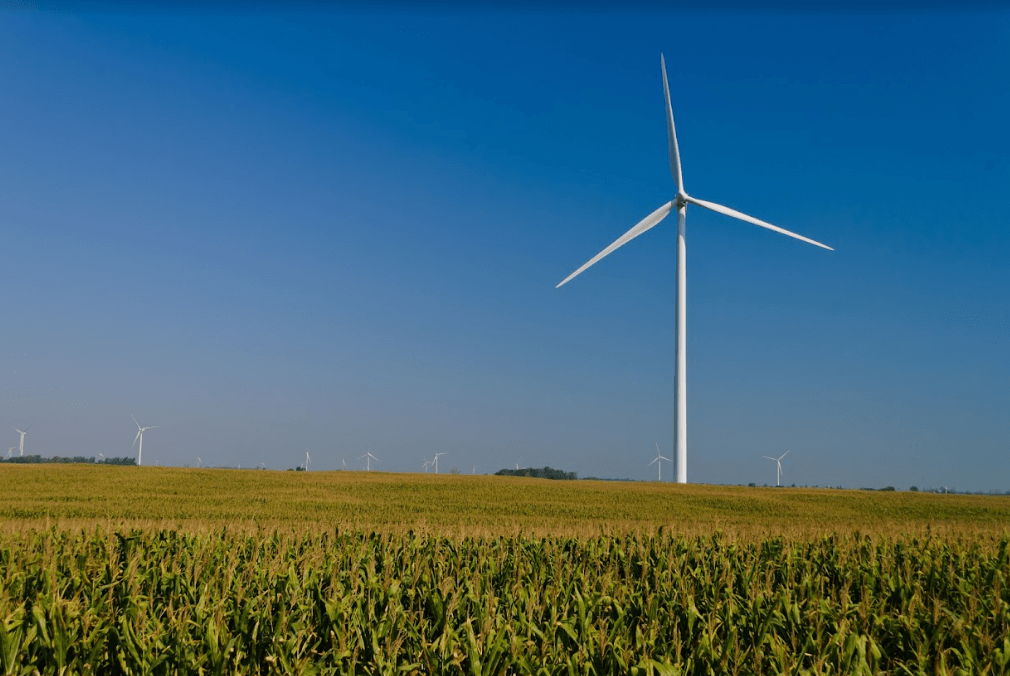As climate change threatens agriculture, the next Farm Bill could provide solutions
The phrase “you are what you eat” dates back to at least 1826, born out of the original French translation “tell me what you eat and I will tell you what you are.” There have been a few different versions since then, but the simple phrase has stuck around in the English language for its efficient yet philosophical reminder that so much of our health and well-being revolves around the food that we put into our bodies.
“You are what you eat” can also be applied to more deeply consider the ways we grow and produce food in this country at a societal level. In a lot of ways, we’ve improved our agricultural systems and understanding of nutrition in leaps and bounds in the post-Green Revolution era. In many other ways, we’ve created all sorts of wicked problems for ourselves through modern agriculture.
From diet-related health crises, to the industrialization and consolidation of agricultural businesses, to the loss of Indigenous knowledge and food culture, to the decline of small-town America – and of course environmental pollution and the biodiversity crisis – there are a variety of serious challenges when it comes to how we produce food, as well as the quality of the food we eat.
In solving these challenges facing our food systems, we have a major advantage over previous generations – we know a lot about the problems and the solutions. Not only that, but we sit at a unique moment where an influx of resources – and a growing political will – is available to tackle some of these problems head-on.
A prime example of resources and politics lining up for positive change is the $20 billion for climate and environmental investments in agriculture contained in the Inflation Reduction Act. Through this monumental bill, Congressional Democrats delivered a wide range of programs that will support and incentivize practices on farmland that will both improve resiliency in our natural working lands and improve the ability to sequester carbon through better soil health and forest management. The bill even takes steps to help repair racial and other forms of discrimination by the U.S. Department of Agriculture in the past by alleviating debt.
As is the case with pretty much every piece of legislation, there were some drawbacks, including a doubling down on harmful corn ethanol expansion programs and tax credits. Additionally, we missed a major opportunity by failing to expand or continue a free-and-reduced-price lunch program for students that is proven to boost academic performance and reduce behavioral problems, among other benefits.
However, it’s clear that the Biden Administration is wasting no time in translating legislative wins into action. Just recently, the USDA announced more than $3 billion in pilot projects and other programs with the goal to reduce greenhouse gas emissions and build climate-smart markets for various commodities, more than tripling the existing commitment for USDA’s climate funding.
Of course the chance to continue this momentum is far from over, and advocates must make their voice heard now. All eyes are on Michigan’s senior Senator Debbie Stabenow, the current chair of the Senate Agriculture Committee, as Congress begins to consider and write the next Farm Bill in 2023 – major legislation that sets policy and funding direction for pretty much all of USDA’s programs (which includes the Forest Service), ranging from nutritional policy and assistance to conservation on hundreds of millions of acres of farmland and national forest land.
No matter the outcome of this November’s elections, Senator Stabenow will have her work cut out for her, as she will have to persuade and work with skeptical Republicans in the Senate and the House. Senator Stabenow has shown her dedication to conservation and played a major role in securing the new funding for agriculture and forestry in the Inflation Reduction Act, but she will need the strong voices and advocacy of Michiganders to give her the cover she needs to keep pushing. With devastating flooding and severe weather affecting farms in Michigan, and historic drought and wildfire in the West and throughout the country, we don’t need a pithy phrase to remind us of all that is at stake.



